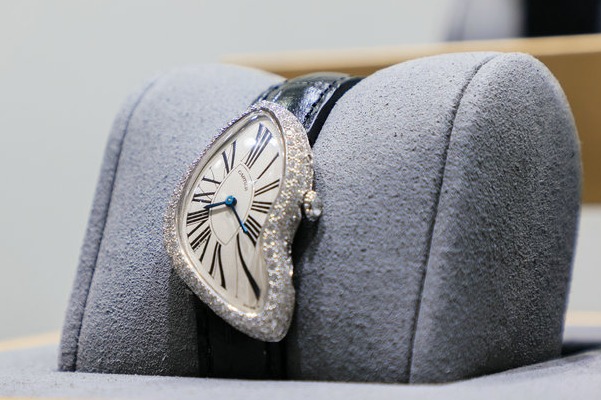Careers with roots deep in royalty

Three halal meat sellers talk of their business experiences.
YUESHENGZHAI MA
Around 1763 Ma Qingrui began working in the Ministry of Rites for Emperor Qianlong of the Qing Dynasty (1644-1911), and he was then recommended to work in the imperial kitchen.
When he was rewarded with a whole sheep due to his diligent work, Ma would take it on to the street and sell various cuts. Later he quit his job and went into the mutton business. In 1775 he opened a store named Yueshengzhai that sold spiced mutton.
Given Ma's reputation for having worked in the imperial kitchen, his mutton soon became popular. The meat had to be cooked for seven to eight hours and then kept for a month.
The second generation Ma Yongxiang and Ma Yongfu then decided to improve the taste and consulted an imperial physician. They added clove, cinnamon, aniseed and other spices to make the mutton more flavorful and nutritious.
The mutton from Yueshengzhai then became the first choice for officials as a gift. Empress Dowager Cixi is said to have loved the meat, and issued permits for Ma's staff to deliver their mutton to her.
Ma Guoqi is the sixth generation, as is his brother Ma Guoai, who moved to Hohhot, Inner Mongolia autonomous region, in 1968, taking his mutton cooking skills with him.
When Ma Guoqi entered the family business in 1991, he raised their prices, reckoning that the premium quality of their beef and mutton warranted premium pricing.
"One kilogram of raw beef produces 500 grams of cooked beef and 1.2 kilogram of raw mutton produces 500 grams of cooked mutton," Ma says. "That's why it takes seven hours to cook the meat: we need to stew out all the water in the meat."
Ma recalls an opera actor passing by Yueshengzhai on a rickshaw just after meat had been taken out of the pot, and he ate a steamed bun soaked in just the fragrance of the meat.
Li Binsheng, a cartoonist, depicted that scene in a drawing for the Beijing Daily in 1950s, and when Ma and Li met decades later, the cartoonist produced an updated version of the drawing and gave it to Ma as a memento.
Now Ma's son Ma Yunpeng and daughter Ma Yunyan have taken over their family business and sell their meat at a booth of a company canteen in Beijing.
BAODU FENG
In 1888 Feng Lishan, a chef, moved from Shandong province to Beijing and started to sell quick-fried goat tripe in the street, for which he was given the name Baodu Feng (Quick-Fried Tripe Feng).
His son Feng Jinhe took over the business at the end of the reign of Emperor Guangxu (1875-1908) in the Qing Dynasty (1644-1911). According to Feng Fusheng, the fourth generation of the business, his grandfather Feng Jinhe, happened to know a prince who was in a street fight and they became friends.
The prince then introduced Feng Jinhe to the imperial kitchen and he became the goat tripe provider.
Feng Fusheng's father collected all the recipes of their business in written form, from the methodology to the ingredients of the special sauce, and passed this on to his sons. Ox tripe was added to their list when Feng Fusheng and his brothers registered their brand name as a restaurant in 1985, and now they have 13 different types of tripe available with nine sheep cuts and four ox cuts.
Feng Fusheng says different parts of the tripe have different flavors and need separate time to cook.
"They all just need seconds to quick fry, but each of them has its own time.
If you taste all the parts you should start with the chewy ones and then the crisp ones and finally the most tender ones. Even though some of them are chewy, they are easy to digest because tripe is the stomach of a sheep or an ox."
For some parts of the tripe, one plate needs to be cut from seven to eight sheep. In summer when sheep are slim it is hard to come by, which gave rise to the use of ox meat.
"There are also different ways of cutting different parts of the meat, meaning each piece of the tripe can be heated evenly," Feng says.
Because Feng Fusheng and his brothers have been dealing with tripe for decades, there is always something of a sheep odor about them.
"When I'm on a bus or go to the bank, people notice the smell and ask if I have just eaten mutton hotpot," Feng says.
CHEESE WEI
At the beginning of the reign of Emperor Guangxu (1875-1908) during the Qing Dynasty (1644-1911), Wei Hongchen learned how to make cheese from a chef in the imperial kitchen and started his business. He had this trick in which if he turned an open container of cheese upside down, the contents would not fall out.
The writer Liang Qiushi wrote in an artical Lao (Cheese) that the cheese from Cheese Wei tasted fresher and better than others, and each time he passed by he would eat two bowls of it.
"Anyone like me who had been out of Beijing for a long time missed the food there, and cheese was one of those foods," Liang said.
Wei Ning is now the fourth generation in the business. His father figured out the way to make rice wine for their cheese, and this became a family recipe.
"We used to buy rice wine to make our cheese, because my grandfather thought that if we made our own we would take other people's business," Wei says.
Wei's father used to sell cheese in two large blue insulation barrels on a street corner near Niujie each day at 3 pm. Both barrels could hold about 40 bowls of cheese, which were sold out soon after school finished.
Wei says that when he was a boy he could have cheese only during Spring Festival.
When Wei reopened the cheese store in Niujie in 2006, many middle-aged customers from the neighborhood would come to taste their childhood-memory flavor.
Wei has added more flavors to their traditional palace cheese, and has expanded their product range to milk custard, herbal jelly and almond jelly.




































